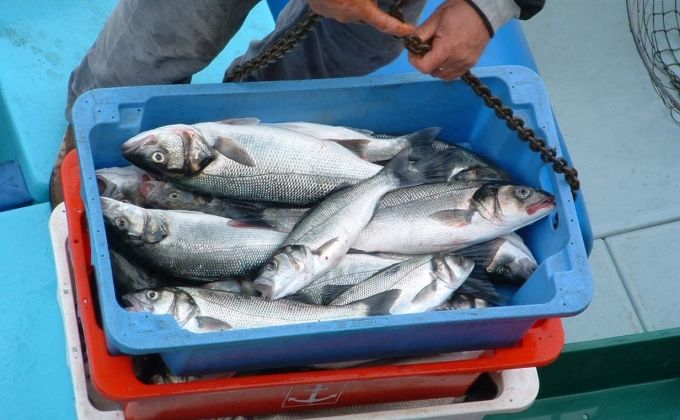11 December 2017
A strong NFFO team is present in Brussels for the December Council, which begins today in Brussels. The Commission has made seabass a central issue for the Council, by proposing an even blunter approach than currently exists, with the prospect of even larger levels of discards of bass caught as unavoidable bycatch in the mixed fisheries.
Landings of bass by the commercial fleets have been reduced by 70% since emergency measures were introduced in 2014. By contrast, scientists estimate that the recreational catch of bass has stayed stable or even increased. The NFFO in pre-Council briefings with Fisheries Minister George Eustice, and officials, has made the case for a more intelligent approach to unavoidable bycatch, allowing boats to land dead bass whilst maintaining measures that will lead to the rebuilding of the bass stocks over a reasonable time period.
“It seems incongruous, to say the very least, to suggest that we should implement measures that will inevitably lead to an increase in discards, in the year before bass comes under the landing obligation, on 1st January 2019”, said Barrie Deas, Chief Executive of the NFFO, on route to Brussels.
“There is no substance in the Commission’s assertion that there is a targeted fishery for bass under the current bycatch rules. That is just wild assertion. What there is evidence of, photographic evidence, is of the sheer waste involved in discarding catches dead bass. With a few adjustments to the bycatch rules this fish could be landed for the human consumption market, without undermining the conservation effect of measures in place, one jot.”
The Celtic Sea mixed fishery is likely to provide another contentious issue. The Commission’s obsession with reaching MSY for all harvested species (a legal requirement hard wired into the CFP reform in 2013, notwithstanding its scientific illiteracy) is likely to be problematic. The NFFO/CFPO have been working strenuously since January with scientists and administrators to build the elements of a mixed fishery approach that would allow harvesting of haddock, cod and whiting at levels that would minimise discards and continue to rebuild the biomass.
Skates and rays are another priority stock for the UK. The Commission have recognised that including all skates and ray under a blanket TAC drags down sustainable catches of the abundant species like thornback, whilst doing precious little to protect the more vulnerable species. A new approach will be needed for next year where skates and ray will present a serious and frequent choke. The question for this Council will be: what can be done for 2018?
In the Irish Sea it is difficult to see the Commission’s proposal on Irish Sea cod as anything other than a crude attempt to create negotiating leverage. ICES recommendation was for a 275% increase and it would be a travesty of the outcome was anything other than to follow the science.
In the Channel, the focus again will be on Eastern Channel sole and rays.
The main TACs for the North Sea have been settled as part of the EU/Norway agreement reached earlier this month. The Commission’s strange proposal for a reverse “of which” quota for nephrops is one of the key outstanding issues.
These issues aside, it is important to remember that overall stock trends are positive and have been for some years now. Most of the problems faced at this year’s Council arise from the management
system and past policy decisions, rather than in the fisheries themselves.
The NFFO team travelling to Brussels will ensure that all of the issues of important to our diverse fleets are covered.
Throwback
This Council feels like a throwback to 15 years ago, when governments and fisheries stakeholders, complained that when the Commission put proposals on the table at the 11th hour, with inadequate scope for scrutiny or discussion, it was not surprising when things subsequently went wrong. Since then, things have improved, particularly when the advisory councils were consulted but all of that seems to have been forgotten or abandoned this year. Perhaps a new generation of officials will need to learn the lessons the hard way.
That will not be the UK’s concern in the future, however, as this will be that last full December Council in which the UK will participate if the UK leaves the EU as scheduled in March 2019. For next year, some different kind of arrangement will be required, firstly to set catch limits for the first part of the year, and secondly for the rest of the year when the UK will become an independent state. Some sort of transitional arrangement for 2019 is likely, with new institutions and arrangements emerging in the autumn of 2019 to agree TACs, quotas and access arrangements for 2020.

